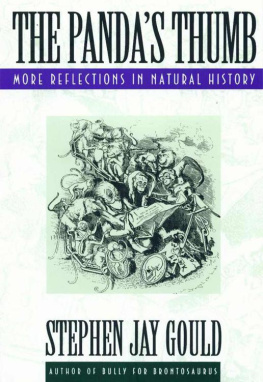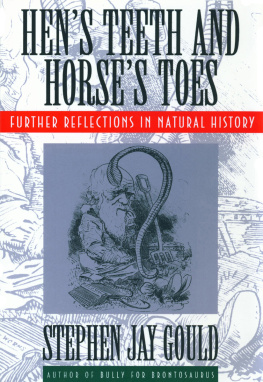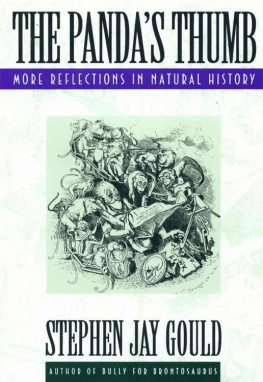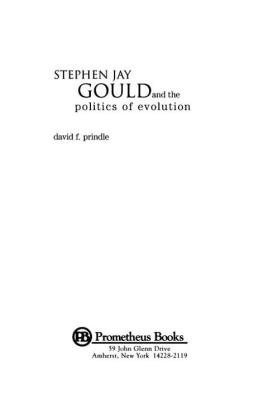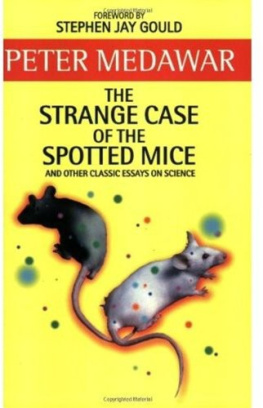R. C. Lewontin - Biology as Ideology: The Doctrine of DNA
Here you can read online R. C. Lewontin - Biology as Ideology: The Doctrine of DNA full text of the book (entire story) in english for free. Download pdf and epub, get meaning, cover and reviews about this ebook. year: 2010, publisher: House of Anansi Press Inc., genre: Politics. Description of the work, (preface) as well as reviews are available. Best literature library LitArk.com created for fans of good reading and offers a wide selection of genres:
Romance novel
Science fiction
Adventure
Detective
Science
History
Home and family
Prose
Art
Politics
Computer
Non-fiction
Religion
Business
Children
Humor
Choose a favorite category and find really read worthwhile books. Enjoy immersion in the world of imagination, feel the emotions of the characters or learn something new for yourself, make an fascinating discovery.

- Book:Biology as Ideology: The Doctrine of DNA
- Author:
- Publisher:House of Anansi Press Inc.
- Genre:
- Year:2010
- Rating:4 / 5
- Favourites:Add to favourites
- Your mark:
- 80
- 1
- 2
- 3
- 4
- 5
Biology as Ideology: The Doctrine of DNA: summary, description and annotation
We offer to read an annotation, description, summary or preface (depends on what the author of the book "Biology as Ideology: The Doctrine of DNA" wrote himself). If you haven't found the necessary information about the book — write in the comments, we will try to find it.
Biology as Ideology: The Doctrine of DNA — read online for free the complete book (whole text) full work
Below is the text of the book, divided by pages. System saving the place of the last page read, allows you to conveniently read the book "Biology as Ideology: The Doctrine of DNA" online for free, without having to search again every time where you left off. Put a bookmark, and you can go to the page where you finished reading at any time.
Font size:
Interval:
Bookmark:
The Doctrine of DNA
R. C. Lewontin

Copyright 1991 R. C. Lewontin
and the Canandian Broadcasting Corporation
All rights reserved. No part of this publication may be reproduced or transmitted in any form or by any means, electronic or mechanical, including photocopying, recording, or any information storage and retrieval system, without permission in writing from the publisher.
Distribution of this electronic edition via the Internet or any other means without the permission of the publisher is illegal. Please do not participate in electronic piracy of copyrighted material; purchase only authorized electronic editions. We appreciate your support of the authors rights.
This edition published in 2010 by
House of Anansi Press Inc.
110 Spadina Avenue, Suite 801
Toronto, ON, M5V 2K4
Tel. 416-363-4343
Fax 416-363-1017
www.anansi.ca
LIBRARY AND ARCHIVES CANADA CATALOGUING IN PUBLICATION
Lewontin, Richard C., 1929
Biology as ideology
(CBC Massey lectures series; 1990)
Includes bibliographical references.
eISBN 978-0-88784-847-6
1. BiologyPhilosophy. 2. BiologySocial aspects.
I. Title. II. Series; CBC Massey Lectures series: 1990.
QH331.L48 1991 574.01 C91-095327-9
Cover design: Bill Douglas
Cover photograph: Ann Cutting/Photonica

We acknowledge for their financial support of our publishing program the Canada Council for the Arts, the Ontario Arts Council, and the Government of Canada through the Canada Book Fund.
For a large part of the history of Western culture, the chief sources of popular consciousness about society were tradition and the Christian Church. Even social revolutionaries like the ideologues of the American Revolution appealed to divine providence for a justification of their politics. In the present century, however, Western society has become more secular and more rationalist, and the chief sources for social theory have become the professional intellectuals, the scientists, economists, political theorists, and philosophers who work largely in universities. These intellectuals are aware of the power they have to mold public consciousness, and they constantly seek ways in which they can publicize their ideas. The common pathway is to become a minor celebrity, known for some all-encompassing and usually rather simplistic discovery about the secret of human social and psychic existence. Its all sex or money or genes. A simple and dramatic theory that explains everything makes good press, good radio, good TV, and best-selling books. Anyone with academic authority, a halfway decent writing style, and a simple and powerful idea has easy entry to the public consciousness.
On the other hand, if ones message is that things are complicated, uncertain, and messy, that no simple rule or force will explain the past and predict the future of human existence, there are rather fewer ways to get that message across. Measured claims about the complexity of life and our ignorance of its determinants are not show biz.
Fortunately, there is a tradition, of which the Massey Lectures are an important part, of providing a public forum for a more complex and less showy world view. So, I was both flattered and delighted to be invited to give the 1990 Massey Lectures on the CBC and to turn the lectures into this book. That invitation has provided an opportunity to struggle against the view that science consists of simple objective truths and that if only we will listen to biologists we will know everything worth knowing about human existence.
The rhetoric, and especially the written rhetoric, of science is very different from ordinary forms of communication, so it was especially difficult to create a set of radio lectures that would be accessible to listeners in general. There was then the further difficulty of delivering those lectures in a lively manner to an unseen radio audience. To the extent that I have succeeded in these tasks, I owe it to the critical judgment of Jill Eisen of the CBC, who made me do it over again until it was right. Without her work and encouragement, the lectures would have been a total failure.
In turning the lectures into this book, I have resisted the temptation to lapse back into the formal rhetoric of written intellectual production, and instead have kept the radio lectures pretty much as they were. Inevitably that leads to some discursiveness and lack of clarity. I am tremendously indebted to Shaun Oakey for editing the text with a touch that was both light and unerring. He made great improvements.
Finally, I am indebted to Rachel Nasca for her production of several versions of the lectures and text from tapes and illegible scrawls. Nothing would have been produced without her.
R.C. LEWONTIN
Cambridge, Massachusetts
16 July 1991
S cience is a social institution about which there is a great deal of misunderstanding, even among those who are part of it. We think that science is an institution, a set of methods, a set of people, a great body of knowledge that we call scientific, is somehow apart from the forces that rule our everyday lives and that govern the structure of our society. We think science is objective. Science has brought us all kinds of good things. It has tremendously increased the production of food. It has increased our life expectancy from a mere 45 years at the beginning of the last century to over 70 in rich places like North America. It has put people on the moon and made it possible to sit at home and watch the world go by.
At the same time, science, like other productive activities, like the state, the family, sport, is a social institution completely integrated into and influenced by the structure of all our other social institutions. The problems that science deals with, the ideas that it uses in investigating those problems, even the so-called scientific results that come out of scientific investigation, are all deeply influenced by predispositions that derive from the society in which we live. Scientists do not begin life as scientists, after all, but as social beings immersed in a family, a state, a productive structure, and they view nature through a lens that has been molded by their social experience.
Above that personal level of perception, science is molded by society because it is a human productive activity that takes time and money, and so is guided by and directed by those forces in the world that have control over money and time. Science uses commodities and is part of the process of commodity production. Science uses money. People earn their living by science, and as a consequence the dominant social and economic forces in society determine to a large extent what science does and how it does it. More than that, those forces have the power to appropriate from science ideas that are particularly suited to the maintenance and continued prosperity of the social structures of which they are a part. So other social institutions have an input into science both in what is done and how it is thought about, and they take from science concepts and ideas that then support their institutions and make them seem legitimate and natural. It is this dual processon the one hand, of the social influence and control of what scientists do and say, and, on the other hand, the use of what scientists do and say to further support the institutions of societythat is meant when we speak of science as ideology.
Font size:
Interval:
Bookmark:
Similar books «Biology as Ideology: The Doctrine of DNA»
Look at similar books to Biology as Ideology: The Doctrine of DNA. We have selected literature similar in name and meaning in the hope of providing readers with more options to find new, interesting, not yet read works.
Discussion, reviews of the book Biology as Ideology: The Doctrine of DNA and just readers' own opinions. Leave your comments, write what you think about the work, its meaning or the main characters. Specify what exactly you liked and what you didn't like, and why you think so.

